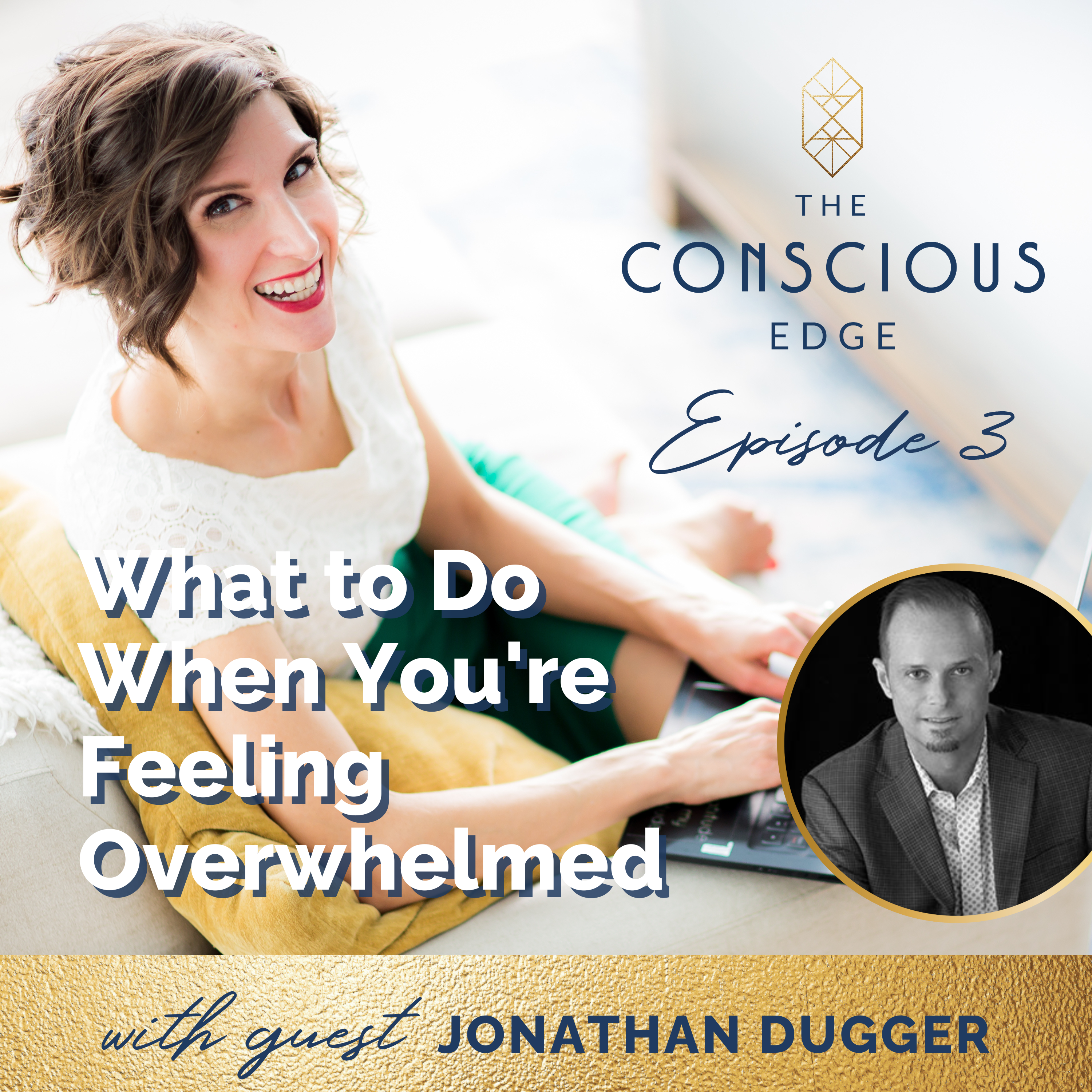Feeling overwhelmed happens to all of us. That’s why my dear friend Jonathan Duggar, wellness advocate and doctor of psychology, is here with me to talk about what to do when it shows up. Because it’s going to happen.
Most people think of overwhelm as a feeling, something we experience. I’ve connected it to a thought to help me recognize it and minimize the impact. The thought behind it for me is I am not capable of getting it all done or I’m not enough.
Once I realize that, I can acknowledge that isn’t true and I can begin to shift my thoughts around that.
Jonathan outlined some of the symptoms of overwhelm that you’ll find familiar. Things like catastrophizing and exaggerating, along with self-deprecation, make us feel like we can’t handle what’s happening.
He also reminds us that most of us don’t go from calm to overwhelm in an instant. It builds up over time so one of the best things we can do is learn to recognize it when it’s just starting. Then we can take steps to deescalate before negative patterns of behavior show up.
What to do when you’re feeling overwhelmed.
- Learn to spot the beginning feelings of overwhelm.
- Get back into your body, ground yourself. Jonathan shares an easy technique that you can do anywhere, anytime.
- When you feel like you don’t have time to eat or take a break, recognize that it’s overwhelm talking and stepping away will help.
- Use breathing exercises to calm your nervous system. Jonathan shares one he uses that you can try when overwhelm starts to creep in.
Grounding for even 60 seconds will change your biochemistry. Mindfulness techniques that you can do in a moment make a difference. When you’re in the midst of overwhelm the solution can feel out of reach but a few minutes to reset is a great first step.
How to build resilience.
What do we do once we’ve gotten back into our bodies and feel less out of control? All the things are still there, the list of things to do or the overbooked calendar. How do you move forward? I call it building resilience. We know things in life aren’t always easy, so having a few tools to rely on when needed helps.
- Think of the thing (or things) as neutral. Nothing is happening to you, it’s just what is.
- Use humor.
- Have an honest conversation with yourself. Unconsciously, your brain says, “I’ll die if I don’t finish this.” It can often feel like everything will fall apart if you don’t do something, so ask yourself is that really true?
- Identify the things you’re trying to control that are uncontrollable and let them go.
- Recognize what you can delegate or eliminate. It’s okay to have a pizza night, for example.
- Ask for help.
- Change your language from I have to and use phrases like I get to or I choose to. Simple changes but the energy is much different.
The final thought I want to leave you with is around asking for help. Notice the places where it feels dangerous or uncomfortable or unsafe for you. Our perception is I have to do it or it won’t be done well, or it doesn’t count if I don’t do it all on my own. Are those perceptions really true?
Acknowledging the thoughts behind the feeling is a great first step to building resilience and blocking overwhelm.
Sending you love and be well!
Connect with Us:
- If you have ideas for topics you’d like us to cover, please email them to hello@consciousedge.com.
- Follow Alecia on Instagram for Bits of Joyful Inspiration
- Connect with Alecia on LinkedIn
- Connect with Jonathan on LinkedIn
- Check out Jonathan Wellness Advocacy
- Disclaimer

